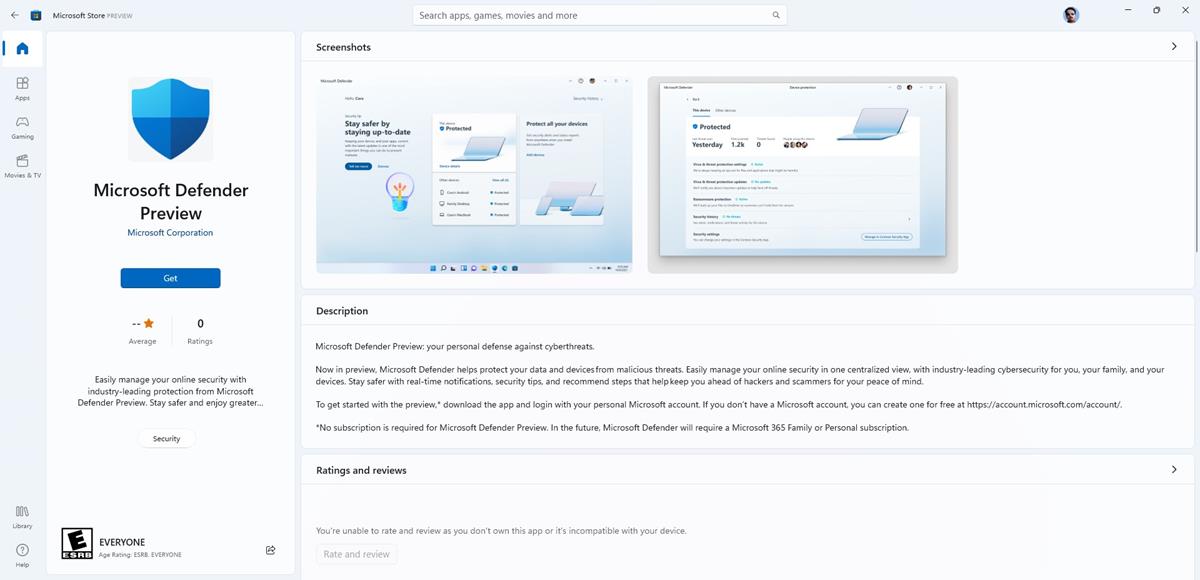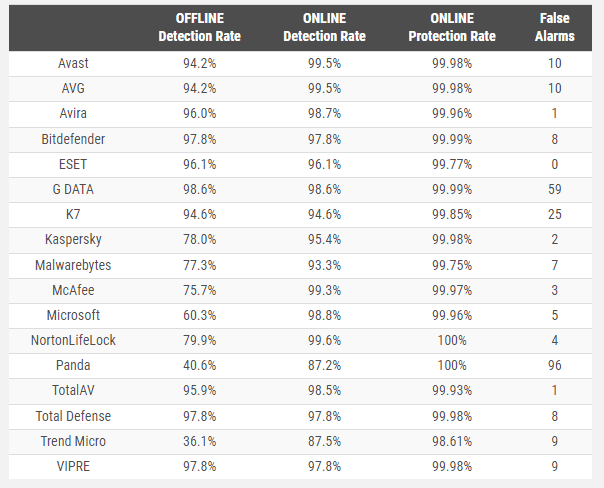Microsoft Defender, the default security solutions on modern versions of the Windows operating system, has been doing well in recent antivirus tests of independent organizations such as AV-Comparatives. In 2019, it was revealed that Windows Defender had a market share of more than 50% already on Windows.

The most recent test by AV-Comparatives confirm the high detection and protection rate of Microsoft Defender, but it also highlights that the program's offline detection rate is weaker than the detection rate of most of the competing antivirus solutions.
According to the results of the test, Microsoft Defender had one of the worst online detection rate results; it managed to detect 60.3% of all threats on offline devices. Only Panda Free Antivirus, with a detection rate of 40.6% , and Trend Micro Internet Security, with a detection rate of 36.1% , scored worse in the offline detection test.
The remaining 14 antivirus solutions offer better offline detection rates according to the test. Bitdefender and Total Defense Essential Antivirus, the latter uses Bitdefender's engine, detected 97.8% of all threats in tests. Many antivirus solutions detected over 90% on offline devices.

Microsoft Defender fared better on Internet-connected devices. The default Windows security solution detected 98.8% of all threats and had a protection rate of 99.96%, good test results but not the best result of all tested products.
AV Comparatives switched from reporting detection ratings to reporting detection and protection ratings for all tested products. Antivirus programs may not always detect inactive malware samples, but they may recognize them when they are active; this explains the higher percentage of the protection rates in the table.
Avast and AVG, the latter is owned by Avast, scored 99.5% and 99.98% respectively, McAfee got 99.3% and 99.97% detection and protection rates, and G Data 98.6% and 99.99%.
Microsoft Defender had 4 false alarms in the test. Five products had fewer false positives, one the same result as Microsoft. ESET's Internet Security program was the only product with no false positive alarms.
Closing Words
Many devices have permanent Internet connections. The result of the offline detection test highlights how important cloud connectivity and testing is for Microsoft's security product.
Now You: which security solutions do you use to protect your devices?
Thank you for being a Ghacks reader. The post Microsoft Defender's protective capabilities suffer offline appeared first on gHacks Technology News.

0 Commentaires